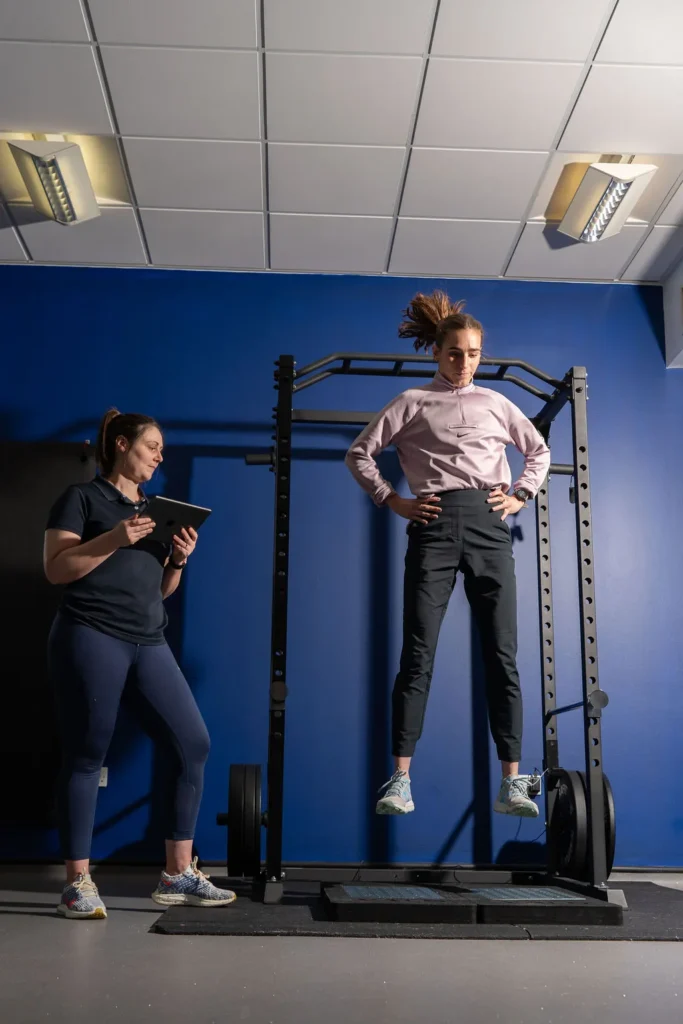Help! I’ve fallen on the ice!!
Well it’s that time of year again. With the joy of the winter comes with it the increased ‘admin’ of icy roads and pathways. It’s the one time of year where walking on the gritted road becomes safer than walking on the un-gritted pavements.
At SPEAR we see this reflected in the types of injuries we start seeing in clinic – strains and sprains from falls, post-fracture rehab work, even post-concussion and whiplash rehab!
With the change in weather, we just thought we would pass on some basic know-how tips and tricks to keep you healthy and independent as much as possible.
1) Rolled ankles: every time we roll an ankle, regardless of how severely, it temporarily slows down the communication between your ankle and your brain, putting it at risk of rolling it again and really hurting it in quick succession. Assuming the initial roll wasn’t too severe and more of a teeter, then try and immediately balance on one foot for between 10 and 30 seconds before continuing, just to wake that connection back up quick fast.
2) Muscle strains: there are three ‘grades’ of soft tissue (muscle, tendon, ligament) injury. Grade 1 is you’ve pulled it but not torn it, grade 2 is you’ve torn some of it, and grade 3 it’s torn all the way through or ‘ruptured’. Signs of a tear include acute, sharp pain, significant weakness, and bruising that develops over the next few hours to a couple of days. Bruising means bleeding, bleeding means tearing. First thing to do, regardless of how severe the strain was, is to NOT stretch it for a minimum of a few days, up to a couple of weeks following the injury. We want to leave the injury site alone, and not pull any torn ends apart. Give the injury about a week to settle, then come in and see us and we’ll work together to get you back to fit and well.
3) Falls: it’s a classic story we hear – ‘I slipped and put my hand out to break my fall’ when someone comes in to see us for a wrist, hand, elbow, shoulder injury. For your brain, your wrist is a lot less valuable than your head or your torso, so the less ‘valuable’ thing is used to break the fall of the more ‘valuable’ thing. If you hit the deck with a decent force you will of course be sore, that’s a given. This tip concerns the type and intensity of the pain that comes on. If you get an immediate pain that takes your breath away, along with an intense throbbing along with local bruising – get on the phone to 111 so they can direct you to the minor injuries clinic. If the pain is significant, but no immediate bruising then pay close attention to it. If a throbbing pain develops that’s intense enough to keep you from sleeping, then same again, phone 111 and get to minor injuries. If none of those symptoms develop, but it’s still sore or ‘not quite right’ after a week, then come on in and see us, we’ll be able to assess it and direct you on, or help rehab you back to health again.
Other than the above, the usual advice rings true:
– Walk like a penguin
– Stick to ‘matte’ surfaces when walking – shiny = wet, wet = slippy
– Wear shoes with deep treads or even better; invest in a pair of snow/ice spikes that can be slipped onto your shoes.
– torches/head lamps for those dark morning school runs and work commutes – you can’t avoid what you can’t see!
